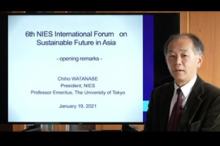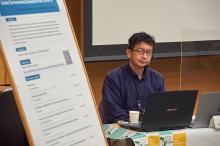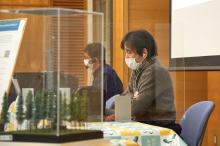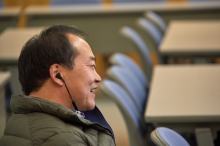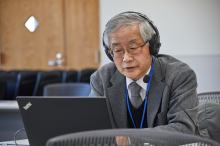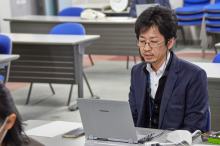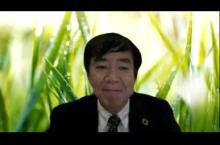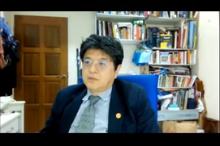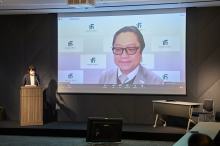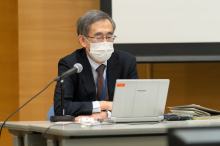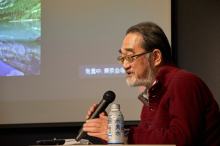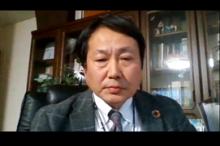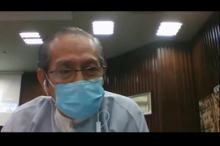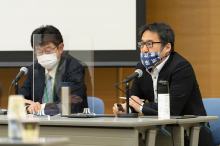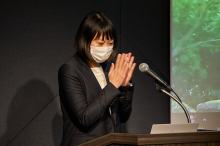Brief report : 6th International Forum on Sustainable Future in Asia / 6th NIES International Forum
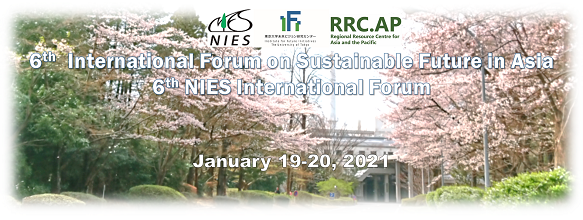
Background
The National Institute for Environmental Studies (NIES) has convoked the NIES International Forum annually since 2015 in collaboration with The University of Tokyo, the Asian Institute of Technology, and a number of Asian research institutes with the aim of facilitating discussions on the direction that should be taken toward a sustainable future for Asia. Moreover, through this international forum, we tried to find out the pathways to further develop and enhance our research network, which includes research institutes throughout the Asian region.
Due to the COVID-19 pandemic, 6th NIES International Forum on Sustainable Future in Asia/6th NIES International Forum was held online from January 19 to 20, 2021. In addition to rally researchers from the co-organizing institutions at past NIES International Forum venues, this year’s event attracted a total of more than 500 participants over the course of two days, with speakers including Japanese and foreign researchers and members of related organizations, and presentations and discussions taking place from a variety of angles focusing on environmental issues in Asia.
The international community is currently accelerating the movement of realizing a sustainable society. During 2015, the Sendai Framework for Disaster Risk Reduction 2015–2030 was adopted at the Third UN World Conference on Disaster Risk Reduction (WCDRR) in March, the Sustainable Development Goals (SDGs) were agreed at the United Nations Summit in New York in September, and the Paris Agreement was adopted at the Paris climate conference (COP21) in December of the same year. The continent in which we live, Asia also faces the need to transform itself into a sustainable region, both economically and environmentally. On the other hand, the COVID-19 pandemic that struck worldwide in 2020 had a huge impact on both the economy and our efforts to address global environmental issues. In the light of these twin crises of public health and the world economy, our response to climate change as well as our handling of issues related to environmental health and hygiene, sustainable development goals and resources, and waste problems are becoming ever more important.
Based on these concerns, at this year’s NIES International Forum, we took up the three broad themes of “Global Environmental Research Post COVID-19,” “Environmental Factors are Major Health Concerns in Asian Countries,” and “Sustainable Consumption and Production (SCP) in Asia,” all of which represent important issues for the Asian region both nowadays and for the future.
(Day1) Expert meeting
In Session 1 (Global Environmental Research Post COVID-19), eight panelists from seven Asian countries were invited to make presentations. There were reports on the current state of observational research centered on terrestrial ecosystems in each country. This report provided an opportunity to share valuable information, including on issues and initiatives in environmental research in ecosystems that are not found in Japan, such as the Mongolian grasslands and the tropical peat swamp forests of Indonesia. There were also suggestions about issues that scientists should be cognizant of in order to allow us to move beyond the pandemic and transform society to become more resilient.
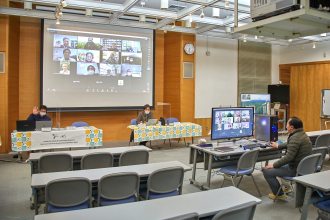
In Session 2 (Environmental Factors are Major Health Concerns in Asian Countries), we shared the latest insights into current environmental health challenges and the risks of chemicals and pollutants in the environment, and we discussed expanding our environmental research network throughout the Asian countries. In the course of these discussions, it was stressed the importance of education for the next generation under the situation of the spread of COVID-19, sharing and gathering information and fostering cooperation among related ministries, and raising public awareness and changing behavior based on government policy.
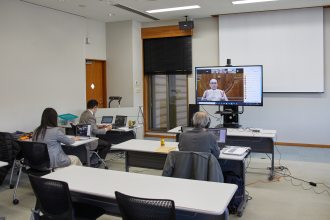
In Session 3 (Sustainable Consumption and Production (SCP) in Asia), research results related to SCP that are important for achieving Sustainable Development Goal (SDG) 12 "responsible consumption and production” were presented. Wide-ranging discussions were held on SCP policy concerning the flow from production to consumption and disposal and the policies that support this flow, and also touching on workshops held in Japan and overseas, backcasting scenario design, the current state of energy and waste issues based on field surveys, and the circular economy.
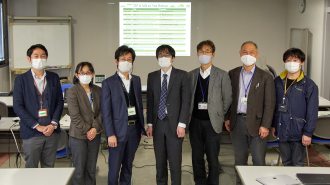
(Day2) Open Symposium
At the open symposium on the second day, the opening remarks were delivered by Dr. Chiho Watanabe, President of NIES, the organizer of the Forum, and Dr. Naoya Tsukamoto, Director of the Regional Resource Centre for Asia and the Pacific at the Asian Institute of Technology (AIT RRC.AP) at the, one of the co-organizers. Both speakers celebrated the opening of the forum and expressed their expectations regarding the discussions that were to take place. In the keynote speeches that followed by, Prof. Dr. Ho Chin Siong of Universiti Teknologi Malaysia introduced his findings concerning Malaysia’s Environmental Action Plan. Next, Dr. Soojeong Myeong of the Korea Environment Institute shared some details about climate change adaptation measures and the Green New Deal being implemented in South Korea. And lastly, Prof. Kensuke Fukushi of the Institute for Future Initiatives at The University of Tokyo (IFI, UTokyo), a co-organizer of the forum, delivered a lecture on wastewater monitoring in Asian cities.
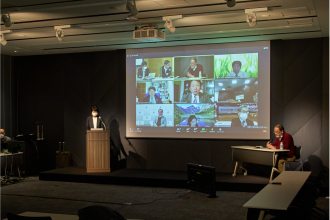
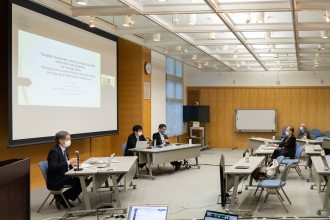
In the latter part of the second day, after the discussions in the Expert meeting on the first day were reported, in addition to the three keynote speakers, Prof. Akimasa Sumi (Professor Emeritus of UTokyo and a former President of NIES), Prof. Dr. Than Htut (Honorary Professor of the University of Public Health/University of Medicine 1, Myanmar), Prof. Tsuyoshi Fujita (Professor of UTokyo), Dr. Tsukamoto (Director, AIT RRC.AP), Dr. Toshihiko Masui (Head of the Center for Social and Environmental Systems Research at NIES), and Dr. Yuji Masutomi (Senior Researcher at the Center for Climate Change Adaptation at NIES) were invited to take part in a panel discussion with Dr. Yuichi Moriguchi (Vice President of NIES) as the facilitator. The panelists considered post-COVID-19 global environmental research from a variety of unusual perspectives, including new values, imperfections in science, and the need for the social sciences, and the discussion was conducted in response to questions from online viewers. Finally, the forum was concluded with a summary by NIES President Dr. Watanabe.
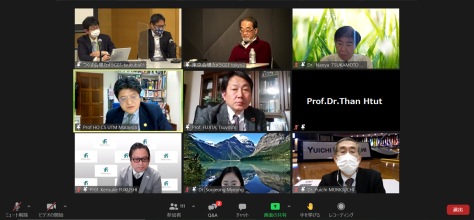
For the Future
This year’s NIES International Forum was attended by researchers from 20 research institutes, mainly those that have participated over the past five years, who appeared on the platform in an online format. In the past forums, researchers and students from the host country have been the main participants, but this year the range of participation broadened as the forum was viewed by people from a variety of backgrounds from many countries including in Europe and America. In future forums, we intend to effectively utilize the online environment to further strengthen information dissemination on international environmental research and deepen collaboration between researchers in different countries.
Photos by Seiji Narita/ Kaoru Shiga (Public Relations Office, Planning Department)
Photos
